Chickens may not be humans. But if there were to be any trait that is common among chickens and humans, it is the fact that the birds tend to fall sick from time to time.
Many factors can be responsible for the ill health of your chickens. It could be malnutrition. It can also be because the chickens don’t have sufficient air. At other times, the nature of the environment can contribute to the ill health of your chickens.
Regardless of the causes of your chickens’ ill health, the point you must note is that they are ill and need to be adequately cared for. That is where the question “How can I help a sick chicken?” comes into the picture.
If you own and rear chickens and on close inspection, you discovered that some of them have taken ill, it is pertinent that you take immediate steps to get them back to good health. In case you have been looking for a good way to go about that, the tips below will help you take care of a sick chicken.
How Do You Know A Chicken Is Sick?
First things first – you want to be sure your chickens are sick before you start looking for how to help them. It is important to identify the traits of illness in the first place because working on mere assumptions may cause you to give medications that would instead aggravate or trigger the illness.
That said, how could you be able to identify a sick chicken so that you can help it? Below are some of the things to look at because they are visible signs that your chickens are ill.
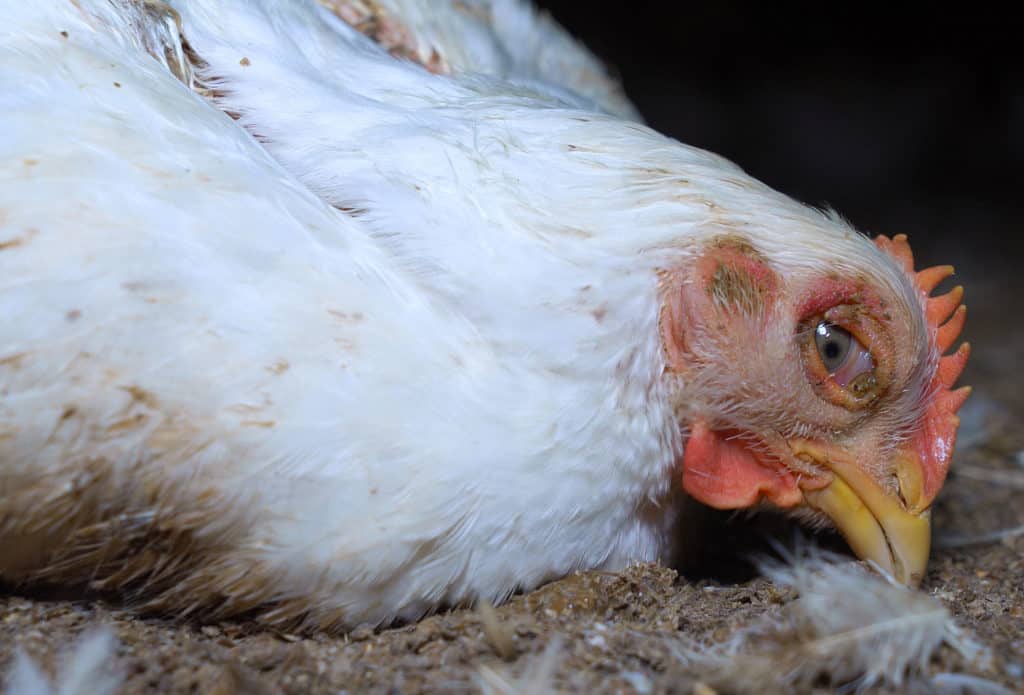
Chronic Respiratory Disease
Ideally, when chickens fall ill, they tend to get the chronic respiratory disease. The disease in this context means that the birds will be having difficulty in breathing.
Therefore, anytime your chickens start having a runny nose, cough more than they may have been doing, and wheezing, they are signals that the birds are ill.
Heat Stroke
Heat Stroke as used herein means that your chickens tend to be having heavy breathing. At the same time, the birds will be struggling to hold their wings away from their bodies because they are suffering from much heat.
Loss of Appetite
This is peculiar to both chickens and humans. Anytime your birds fall sick, it is more than likely that they will lose appetite. In such cases, your chickens will either stop eating and drinking or they will be taking smaller quantities as opposed to the mouthful they used to consume.
Abnormal Droppings
It is not out of place for your chickens to drop their waste. However, you need to take it a lot seriously if the birds start having frequent and unexpected droppings, which are often triggered by diarrhea and stomach problems.
Other signs that will warn you that your chickens are:
- Dull eyes
- Difficulty in walking
- Weakness
- Tremendous weight loss
How Can I Help A Sick Chicken?
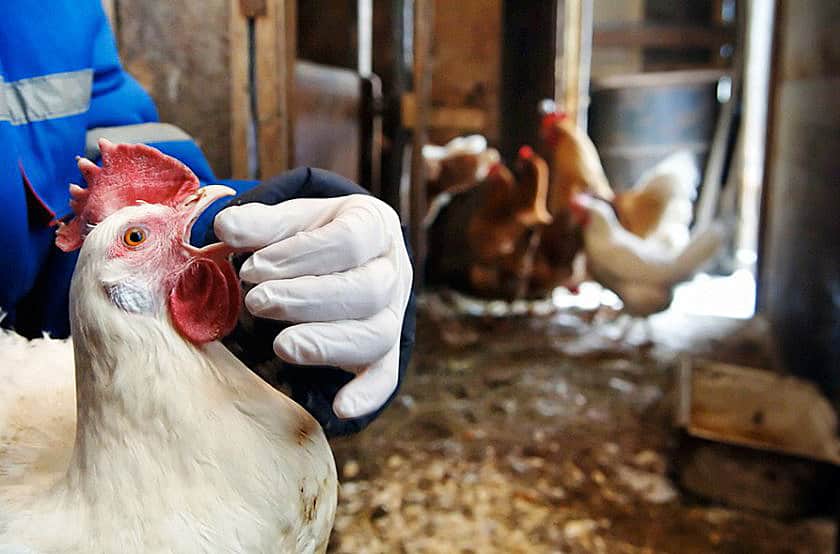
Now that we have figured out some of the symptoms that dictate if a chicken is sick, it is time to look for ways to help a sick chicken.
Below are some of the expert tips and ways you can take advantage of to tackle the ill health of your birds.
1. Quarantine Pen
We are sure that the first thought that probably came to your mind is to “separate the wheat from the chaff”. That, in extension, implies that you have to separate the sick chickens from the ones that are still healthy.
How do you go about that? The solution is to look for a quarantine pen. The aim of the pen is to make it easier for you to isolate the sick chickens from the healthy ones. At the same time, it helps you to keep a watchful eye on the birds and see how they are improving with the treatment you or the vets are offering.
Helpful Tips On Quarantining Sick Chickens
If you must be successful at quarantining and isolating sick chickens, the tips below can be beneficial to you:
- Ensure that the quarantine pen is open so that the chickens can have sufficient air
- Make sure that the pen has enough room for you sick chickens to have space to move around
- Remember to add the same kind of chicken feeders, beddings and waterer/water dispenser your sick chickens may have been using in their earlier coop
2. Provide Digestive Support
In their sick state, your chickens may be finding it difficult to digest meals. As was pointed out in some of the signs to look for, there may also be the chances that your sick chickens will not be able to eat and drink.
That is why the provision of digestive support in the life of any sick chicken. The idea is that digestive support has the capacity to help your sick birds in producing the right enzymes that are required for proper digestion of food.
At the same time, the digestive support has a way of reconditioning the chicken feeds so they can become more bio-friendly, especially at the times the sick chickens will need their meals to be in that format.
3. Keep Your Chickens Hydrated
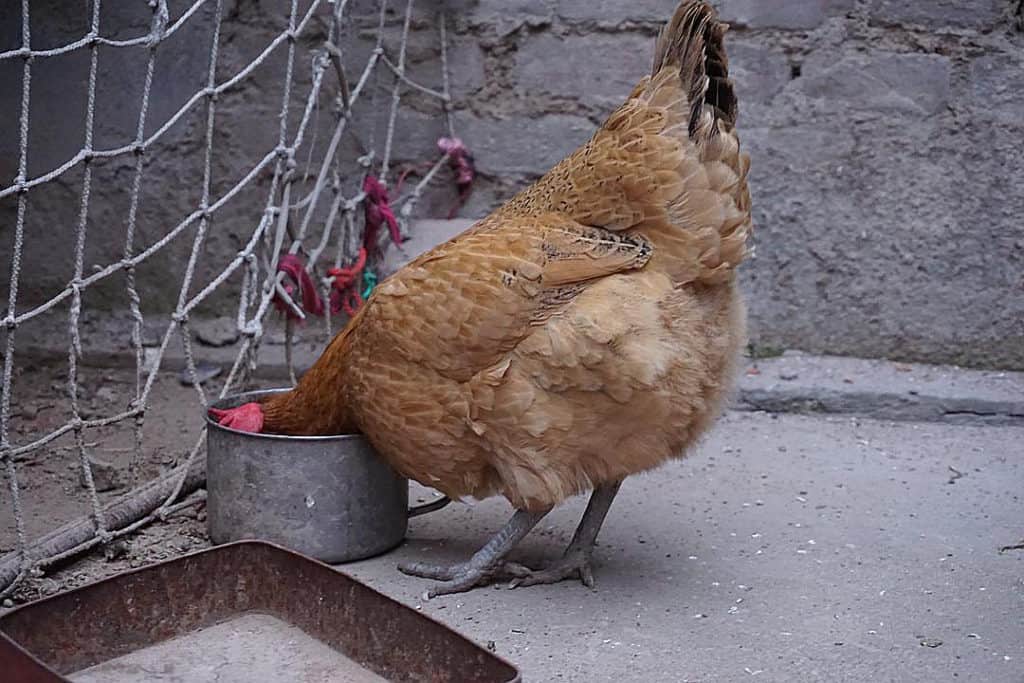
In as much as your birds may be having some challenges in drinking water, you mustn’t relent in your efforts to keep them hydrated. The point is that hydration is important in helping a sick chicken.
Ideally, regular intake of water (no matter how little) can help your sick chickens to eliminate body wastes, digesting food the right way, and regulating the body temperature.
Note: In the absence of sufficient water, your sick chickens may not be able to stand a chance of fighting illness. That is why it is important for you to start taking immediate steps to keep them hydrated at all times.
4. Sickie Separation
You also have the option of taking some time to find out if your chickens truly have the illness you are suspecting them to have. For some reason, you may be making the wrong judgments and working on assumptions.
In that case, you need to use what is known as “Sickie Separation”. It is a term and concept, which has to do with the preliminary isolation of chickens suspected to be sick.
First, you must look at some of the symptoms that point to the fact that your chickens may probably be battling some sickness. Some of the signs to look for include but are not limited to:
- Reductions in the egg production
- Loose and frequent droppings
- Constant coughing
- Self-isolation: The chickens do not want to get in contact with other chickens
- Little or no craving for appetite
- Swollen eyes, head, vent, and neck
- Loose and dropping feathers
When you notice such symptoms, the best thing is to remove the affected chickens from the rest of the flock. Keep them in a secluded and isolated place and watch them for some time.
That way, you will be solving many potential problems, such as the potentiality of the affected chickens to affect the rest of the flock. It will also reduce the chances of bullying from the affected chickens.
5. Scare Away Parasites
Sometimes, your chickens may not be sick in the right sense of the word. The birds are simply infested by parasites. That is why chicken rearers are advised to be on the lookout for potential parasites that will be looking for an opportunity to infest their birds.
What Will You Do To Infected Chickens?
What if after your careful observations and scaring away of parasites and in the end, your chickens are infested?
If you happen to have such a case in your hands, we advise among many other things that you:
- Apply insecticide powder on the surfaces where your chickens may get in contact with
- Quarantine the birds for about three weeks to satisfy yourself that they were merely infested and not sick
- Liaise with your local veterinarian healthcare facility to confirm the best treatment to administer on the chickens
How You May Not Help Your Sick Chickens
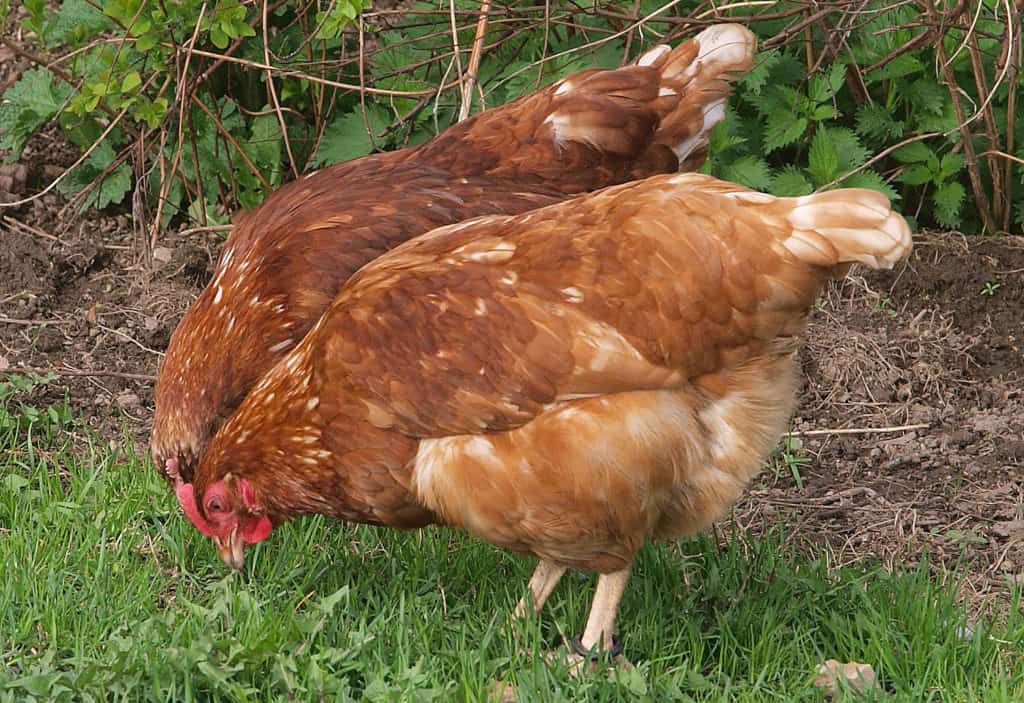
There are many do’s and don’ts that come with taking care of sick chickens. We have looked at some of the ways to help the birds. Now, it is time to consider some of the don’ts or the things you must never do to a sick chicken.
Don’ts of Helping Sick Chickens
Listed below are some of the things that you must never consider help for sick chickens:
- Do not change the chickens’ feeds because you want to introduce supplements and feeds that will supposedly help them get better
- Do not engage in random or self-induced treatments. Instead, consult your veterinarian for help
- Sanitize your hands after attending to sick chickens. That helps the chances of further spread
- Start treating your healthy flocks of chickens first before attending to the isolated or affected chickens
Help A Sick Chicken Today
You may have chickens or you have neighbors and friends that may be rearing some. At different points, their birds tend to get ill and the owners will be at a loss on what to do.
Now that you have an idea of the symptoms to look for and how to help a sick chicken, it is time you do something about that. One of the things you can do is to share this article to inspire others then drop a comment on anywhere you need help so we can guide you further.

Joseph Hudson has been raising chickens for over 15 years. In 2018, he completed the Agriculture & Natural Resources program at Mt. San Antonio College. He currently raises over 1400 chickens on his 7.5-hectare farm. He keeps sharing his experience on raising healthy and happy chickens on Chicken Scratch The Foundry.
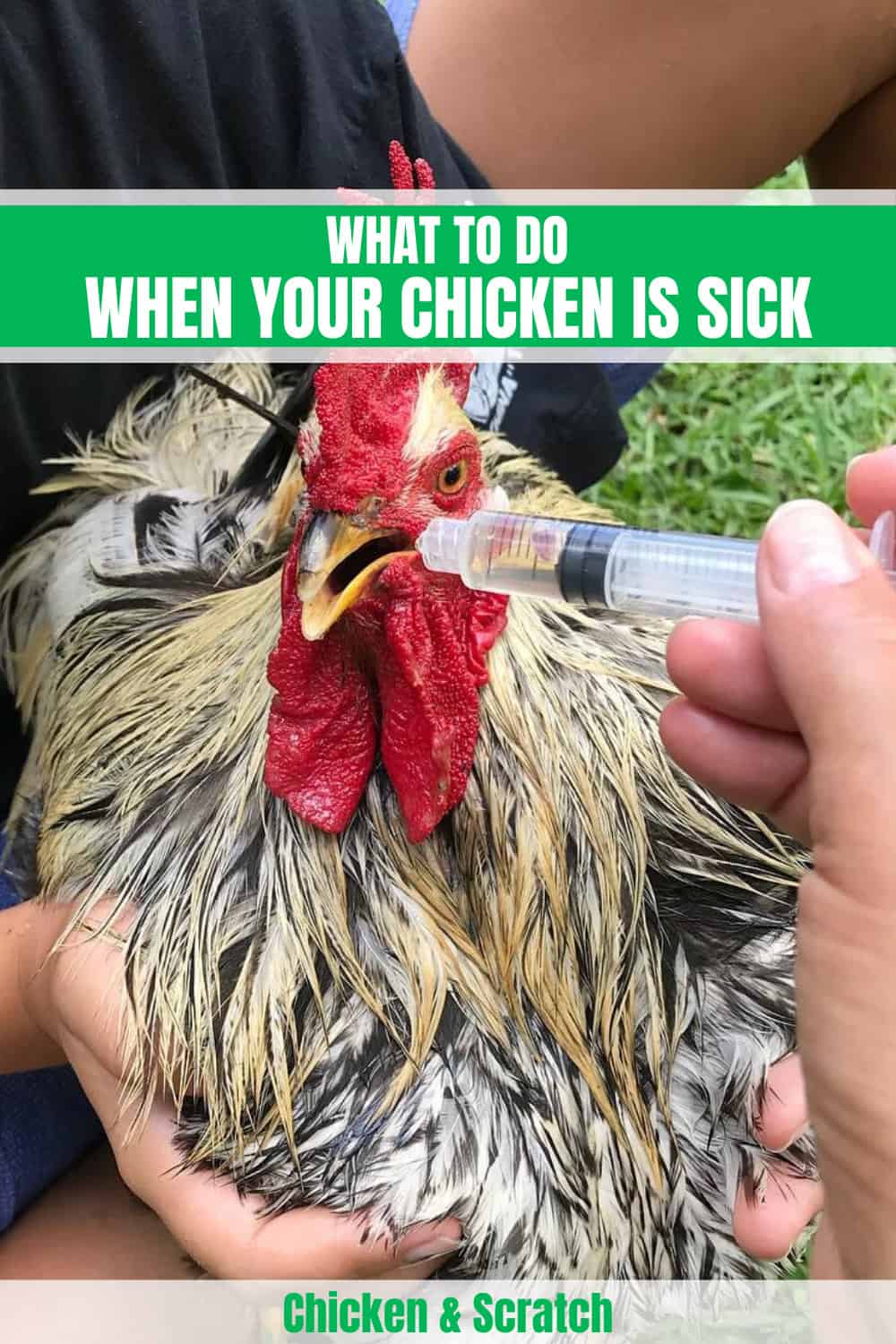
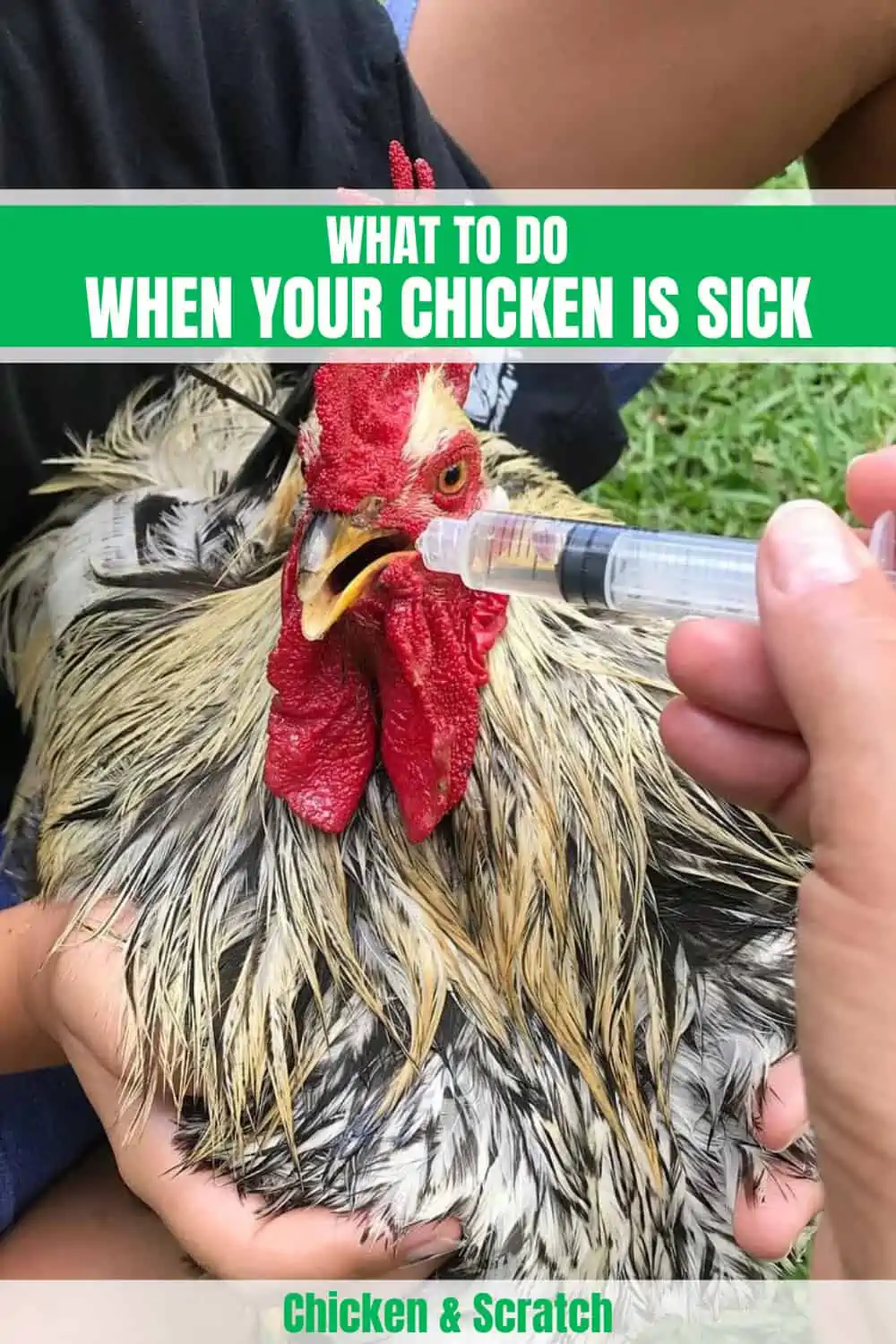







what can I do when my chickens poop is runny?
I Mix edible Diatomaceous Earth in the chicken feed. My chickens have never had parasites or have had runny poopy butts.
Read that diatamecous earth is good for killing lice/mites but should not be kept laying around on surfaces as the the weight is so low that much of the atoms remain airborn, enter the respiratory tract and cause suffocation or tumors.
Not sure if this is the case, but it seems logical.
Oh, “edible” diatomaceous earth, sorry didn’t realise there was a kind available. Any details for “edible diatomaceous earth”? How is it different from standard diatomaceous earth?